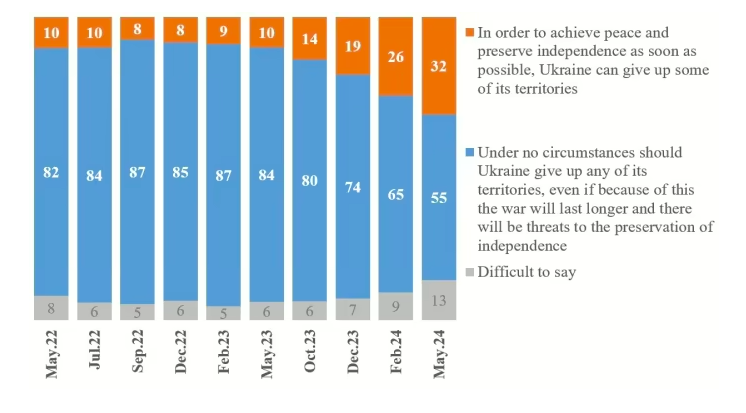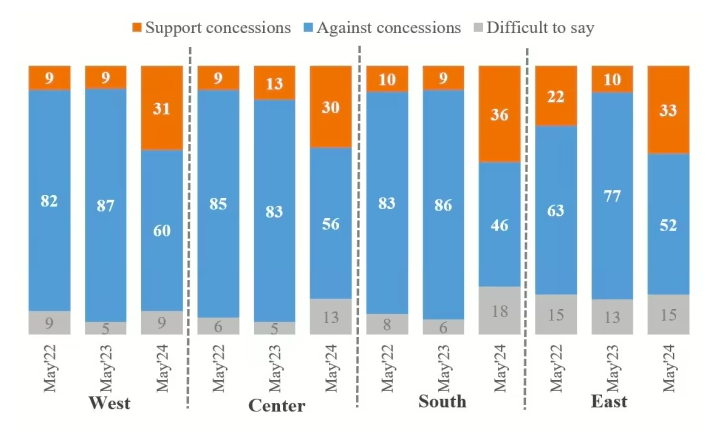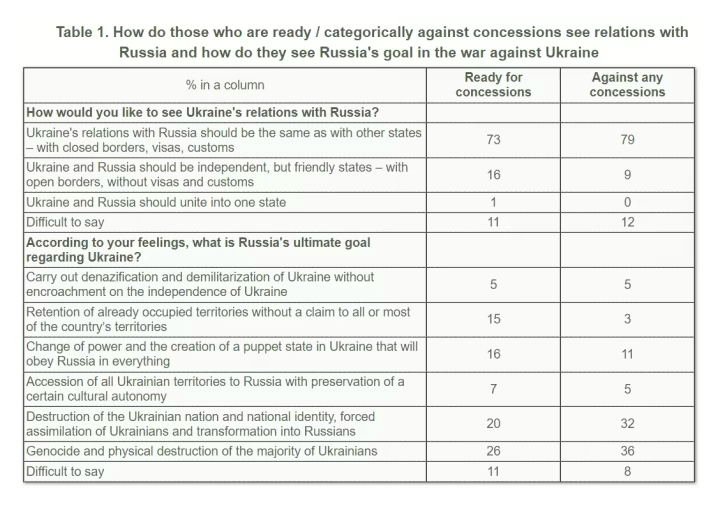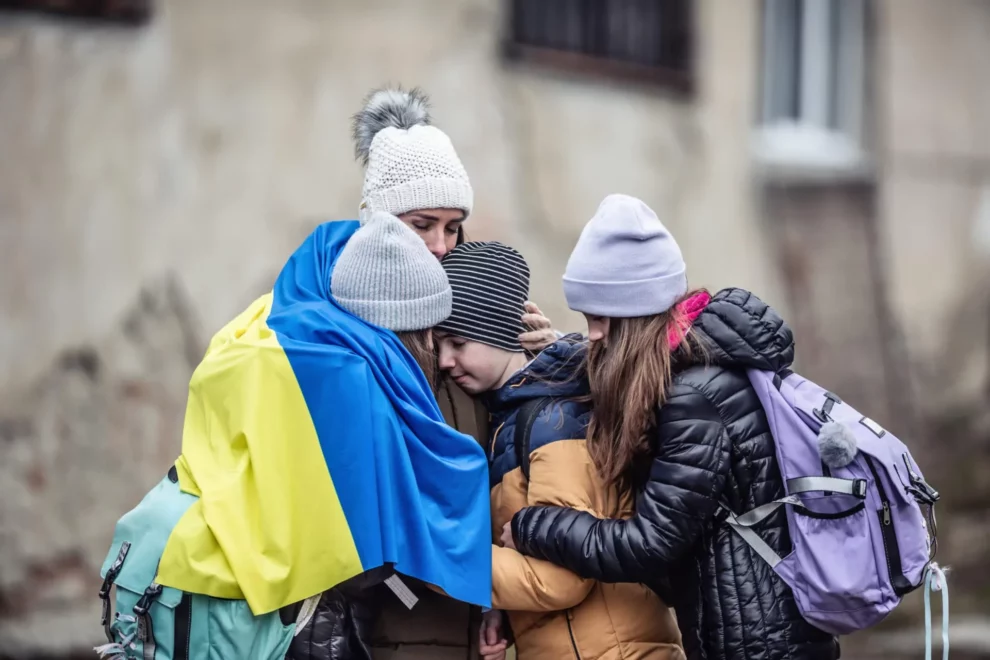The percentage of Ukrainians willing to make territorial concessions for the quickest possible achievement of peace and the preservation of independence in May 2024 was 32%. However, the majority of citizens are not willing to make any territorial concessions.
Source: results of a poll conducted by the Kyiv International Institute of Sociology (KIIS) from 16 to 22 May and from 20 to 25 June 2024
Details: The survey indicates that since May 2023, there has been a gradual increase in the proportion of those willing to make territorial concessions. Specifically, by the end of 2023, the willingness to make concessions had risen to 19%; in February 2024, it increased to 26%; and by May 2024, it reached 32%.
With which of these statements regarding possible compromises to achieve peace with Russia do you agree to a greater extent?

At the same time, as of May 2024, the majority of Ukrainians, or 55%, were opposed to any territorial concessions.
Readiness for territorial concessions in the regional dimension

Among those who are generally ready for concessions, 73% want to be fenced off from Russia – to close borders, visas, and customs between Ukraine and Russia (a similar indicator among those who are against any concessions is 79%).
Regarding Russia’s intentions, these respondents feel the existential threat slightly less acutely, but even among them, 46% believe that Russia aims to destroy the Ukrainian nation or carry out physical genocide (among those who are against any concessions, this figure is 68%).
At the same time, only 5% share the genuinely pro-Russian narrative that Russia “seeks to carry out denazification and demilitarisation without encroaching on the independence of Ukraine.”

Commenting on the study’s results, Anton Hrushetskyi, KIIS’s Executive Director, noted that in May, when sociologists asked about willingness to make territorial concessions, the full-scale invasion had already been ongoing for over two years, the Russians had launched a major offensive in Kharkiv Oblast and there were delays in the supply of necessary weapons. Additionally, Ukraine was being destabilised by questions regarding the legitimacy of the president, the mobilisation law had come into effect and other factors were at play.
Quote: “Therefore, the fact that despite all the challenges of modern realities, the majority of Ukrainians continue to reject territorial concessions means that the glass is ‘half full’. Undoubtedly, there are alarming trends and it is necessary to respond to them in a balanced and constructive manner, but the situation should not be overdramatised,” Hrushetskyi said.
He said that it is also important to note that in the context of potential “concessions”, Ukrainians are against “peace on any terms”. “Although there is ambivalence in the views of Ukrainians (and this is a completely normal situation for democratic societies), it is not as striking as try to present it, and the results of the survey show the flexibility of Ukrainians within the framework of a possible dialogue,” Hrushetskyi commented.
For reference: The KMIS surveys were conducted from 16 to 22 May 2024 and from 20 to 25 June 2024. A total of 1,067 respondents were interviewed across all Ukrainian-controlled regions.
Formally, under normal circumstances, the statistical error of such a sample (with a probability of 0.95 and taking into account the design effect of 1.3) did not exceed 4.1% for the May survey. For the June survey, an experiment was carried out with 2,008 respondents, who were randomly divided into three equivalent subsamples (each containing 644 to 694 respondents). The results were analysed for each subsample separately, with the margin of error about 5% for each subsample.
Source: Pravda









